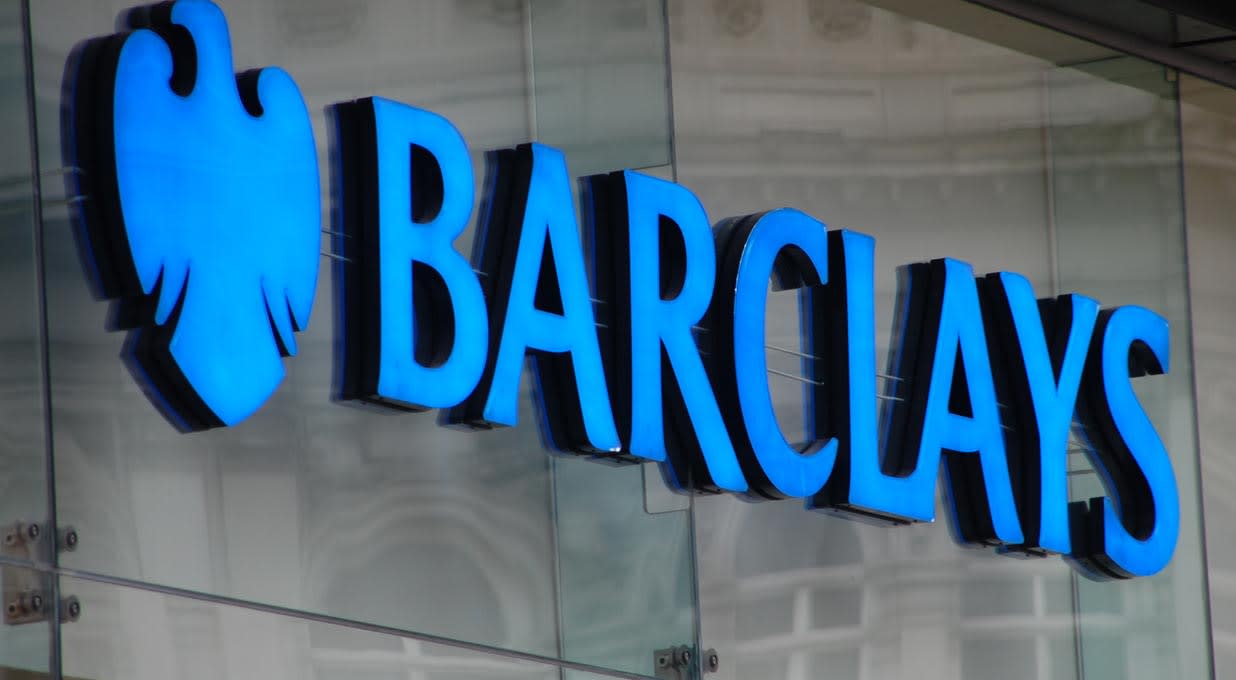Barclays reported first-quarter income of £7.0bn, down 4%. Performance was mixed across divisions. Rising US card balances and higher hedge income were more than offset by lower investment banking activity, consumers shopping for better deposit rates and ongoing mortgage headwinds.
Profit before tax of £2.3bn was down 12%, but better than expected, driven by good cost control. Return on tangible equity (RoTE) of 12.3% was down from 15.0% seen last year.
Capital levels are at the middle of the target range, with a CET1 ratio of 13.5%.
Guidance is looking for RoTE of over 10% in 2024, improving to 12% in 2026. Group net interest income, excluding the Investment Bank and Head Office, is expected around £10.7bn.
The shares rose 3.7% in early trading.
Our view
Credit where it’s due, cost controls look to be making a difference for Barclays and first-quarter trading was broadly better than expected.
2024 will be more about trying to stabilise performance, than beat the year just gone. On that front, there are positive developments. Consumers have been shifting to higher rate, longer term, savings accounts over the past few quarters – bad for banking profit. But that shift is now slowing, and we think the bulk of the account swapping is behind us.
The mortgage market's also been a headwind for most banks, but trends are starting to improve. Add in the ongoing benefit from the structural hedge (essentially a bond portfolio that should yield higher returns as older contracts mature), and there are reasons to be optimistic about UK interest income into 2024 and beyond.
But Barclays is a well-diversified beast, and the UK's just one part. It's also one of the largest global investment banks and has a sizeable US credit card business.
Higher rates along with increased US credit card balances, have been a tailwind, but it can be a double-edged sword. Default rates on US credit cards continue to tick higher and with US rate cut expectations coming down, there could be ongoing pressure on its card users over the pond. Something to watch in the coming quarters.
Fees in the investment bank finally rose a touch but at a slower pace than both consensus and US peers. Still, it's one of the best outfits outside the US and offers a different avenue for income compared to UK-focused peers. How Barclays drives growth here is key, given how strong the competition is.
The balance sheet is well capitalised and guidance points to £10bn in distributions over 2024-26, weighted toward buybacks. That’s around 35% of Barclay’s current market cap. It’s ambitious and no returns are guaranteed.
There’s a new strategy at play and plenty to like about the globetrotting operations. But markets are unlikely to fully reward the stock until it demonstrates sustained progress, especially in areas like investment banking where the US peer group is so strong.
Environmental, social and governance (ESG) risk
The financials sector is medium-risk in terms of ESG. Product governance is the largest risk for most companies, especially those in the US and Europe with enhanced regulatory scrutiny. Data privacy and security is also an increasingly important risk for banks and diversified financial firms. Business ethics, ESG integration and labour relations are also worth monitoring.
According to Sustainalytics, Barclays’ overall management of material ESG issues is strong.
Barclays has some room for improvement regarding customer data privacy and environmental commitments. Despite strong policies overall, investigations are ongoing about alleged currency manipulation, and its data security could use strengthening with more frequent risk assessments and external audits. The quality of its environmental policy has deteriorated, with limited commitments to reducing emissions.
Barclays key facts
All ratios are sourced from Refinitiv, based on previous day’s closing values. Please remember yields are variable and not a reliable indicator of future income. Keep in mind key figures shouldn’t be looked at on their own – it’s important to understand the big picture.
This article is not advice or a recommendation to buy, sell or hold any investment.No view is given on the present or future value or price of any investment, and investors should form their own view on any proposed investment.This article has not been prepared in accordance with legal requirements designed to promote the independence of investment research and is considered a marketing communication.Non - independent research is not subject to FCA rules prohibiting dealing ahead of research, however HL has put controls in place(including dealing restrictions, physical and information barriers) to manage potential conflicts of interest presented by such dealing.Please see our full non - independent research disclosure for more information.


